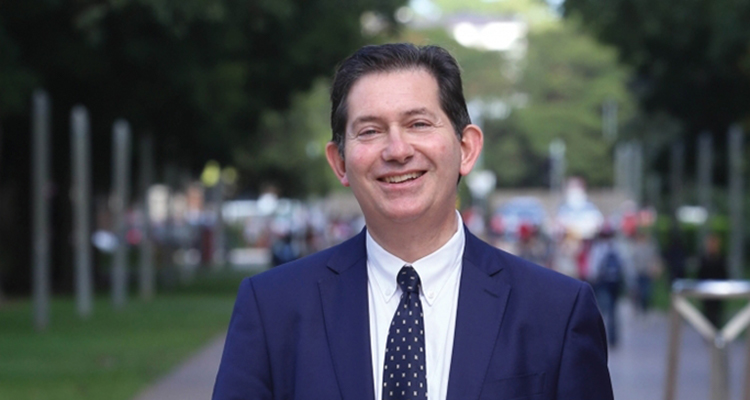
Dear colleagues
I hope that you have enjoyed the celebratory atmosphere on campus this week during graduations. The ceremonies provided an apt backdrop to news of the recognition of our staff and alumni in the Queen’s Birthday Honours list. UNSW was well represented, with members of the UNSW community making up four of the 10 new Companions of the Order of Australia (AC): Scientia Professor Rose Amal AC; Emeritus Professor of Economics Geoffrey Harcourt AC; The Honourable Catherine Branson AC QC; and the late Scientia Professor of Medicine David Cooper AC. The UNSW community had an extraordinary 13 AO awards as well, including: Dean of Science, Professor Emma Johnston; Executive Director of the Centre for Primary Health Care and Equity, Scientia Professor Mark Harris; Professor Kenneth Maher from the Faculty of the Built Environment; Associate Professor Katherine Tucker from the Faculty of Medicine; and Dr Catherine Grenville, Writer in Residence. Overall, more than 100 members of the UNSW community received honours. My congratulations to them all.
I was also excited to hear of major awards to two UNSW academics. Scientia Professor Martin Green was awarded the Global Energy Prize—the first Australian to receive this prestigious international award. Martin’s work on photovoltaics has spanned decades and transformed the energy sector. Former Dean of UNSW Built Environment, Emeritus Professor Alec Tzannes, won the Australian Institute of Architects Gold Medal. This is the Institute’s highest honour, and places Professor Tzannes among greats such as Jørn Utzon and Robin Boyd. Congratulations to both.
The latest QS World University Rankings were announced last week. We remained 45th globally in these rankings which are based on research outputs and international reputation. The strength of our research output was reflected in the 2018 Nature Index, where UNSW ranked third in Australia. It is noteworthy that despite intense competition from universities around the world, Australia continues to do well in the QS rankings with seven of the Go8 universities in the top 100.
It was a pleasure to welcome the Human Rights Commission’s Disability Discrimination Commissioner, Alastair McEwin, to campus last week for the launch of UNSW’s Disability Inclusion Action Plan (DIAP) 2018-2020. A UNSW alumnus himself, Mr McEwin spoke powerfully on why inclusion matters, reflecting on his own experiences as a student with disability. Mr McEwin, who was born deaf, explained how he spent five years of his undergraduate law studies without notetaking support. Universities have come a long way since those days, and I was heartened to hear that Mr McEwin’s later experience at UNSW was resoundingly positive. But there still is so much more we need to do to support those at UNSW with disability. I encourage all staff to familiarise yourselves with the DIAP, understand what you can contribute and consider accessibility and inclusivity in every aspect of your work.
Many staff and students will have experienced inconvenience during the last week due to a problem with data storage. Our IT team worked hard to restore the data and I understand that the vast majority of data has now been restored. Steps are being taken to understand the cause of the problem and prevent it recurring. If you still have questions or concerns you can find the latest advice here.
Finally, I’d like to extend my appreciation to Professor Anthony Kelleher, Daren Draganic, and all those from the Kirby Institute who were involved in organising yesterday’s memorial event for Scientia Professor David Cooper. His extraordinary contribution to Australia and internationally was recognised this week by an AC award in the honours list and the memorial event was a fitting tribute to a remarkable man. His scientific legacy continues to be honoured through the David Cooper Symposium here on campus today.
Best wishes, Ian
- Log in to post comments
